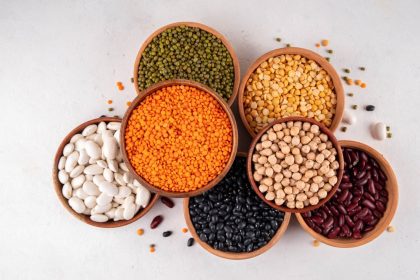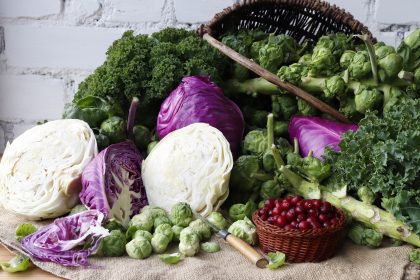Maintaining optimal health can be challenging. We often find ourselves juggling various responsibilities, leaving little time to focus on our well-being. Amid the chaos, it’s easy to overlook the foundational elements of health—such as proper nutrition. One crucial aspect of nutrition that often gets neglected is the consistent intake of essential vitamins. These vitamins are not just optional extras; they are vital for keeping our bodies functioning at their best.
Without them, we may feel fatigued, run down and more susceptible to illnesses. This article will explore the seven essential vitamins that you should incorporate into your weekly routine to ensure you stay in peak health. By understanding the importance of these vitamins and how they contribute to your overall well-being, you can take proactive steps to safeguard your health.
The importance of vitamin D
Why you need it
Vitamin D is often called the “sunshine vitamin” because our bodies produce it in response to sunlight exposure. However, many people don’t get enough sun exposure to meet their vitamin D needs, particularly those living in regions with long winters or those who spend a lot of time indoors. Vitamin D is crucial for bone health because it helps your body absorb calcium, reducing the risk of fractures and osteoporosis. Moreover, it plays a significant role in immune function, helping your body fend off infections and illnesses.
How to get enough
To ensure you’re getting enough vitamin D, consider spending more time outdoors, particularly in the early morning or late afternoon when the sun’s rays are not as intense. However, if natural sunlight exposure is limited, taking a vitamin D supplement is a practical solution. Foods like fatty fish, fortified dairy products and eggs can also contribute to your vitamin D intake, but supplementation is often necessary to meet your weekly requirements.
The power of vitamin C
Why you need it
Vitamin C is a potent antioxidant that protects your body from harmful free radicals, which can cause cellular damage and lead to chronic diseases. Beyond its antioxidant properties, vitamin C is essential for the production of collagen, a protein that helps maintain the integrity of your skin, blood vessels and connective tissues. Moreover, it boosts your immune system, making it a vital component in preventing and managing colds and other infections.
How to get enough
Citrus fruits like oranges, lemons and grapefruits are well-known sources of vitamin C, but you can also find it in strawberries, bell peppers and broccoli. Incorporating these foods into your diet weekly will help you maintain adequate vitamin C levels. If you struggle to get enough through your diet alone, a vitamin C supplement can help bridge the gap.
The necessity of vitamin B12
Why you need it
Vitamin B12 is crucial for maintaining healthy nerve cells and producing DNA, the genetic material in all cells. It also plays a significant role in the formation of red blood cells, which transport oxygen throughout your body. A deficiency in vitamin B12 can lead to anemia, fatigue, weakness and neurological issues, making it essential for overall health and vitality.
How to get enough
Vitamin B12 is primarily found in animal products such as meat, dairy and eggs. Therefore, vegetarians and vegans may need to take a B12 supplement to avoid deficiency. Fortified cereals and plant-based milk alternatives can also provide some B12, but supplementation is often the best way to ensure you’re getting enough, especially if you follow a plant-based diet.
The benefits of vitamin A
Why you need it
Vitamin A is essential for maintaining good vision, especially in low-light conditions. It also supports the immune system and plays a critical role in cell growth and differentiation, which is vital for healthy skin and tissues. Additionally, vitamin A has antioxidant properties that protect your cells from damage caused by free radicals.
How to get enough
You can find vitamin A in two forms: preformed vitamin A (found in animal products like liver and dairy) and provitamin A carotenoids (found in plant-based foods like carrots, sweet potatoes and spinach). A balanced diet that includes both sources is ideal for ensuring you get enough vitamin A. If you have dietary restrictions that limit your intake of these foods, consider a vitamin A supplement to meet your needs.
The significance of vitamin E
Why you need it
Vitamin E is a powerful antioxidant that protects your cells from oxidative stress, which can lead to chronic diseases such as heart disease and cancer. It also supports immune function and skin health, making it a vital component of your weekly vitamin regimen. Moreover, vitamin E is involved in various metabolic processes, including the proper function of many organs.
How to get enough
Vitamin E is found in nuts, seeds and vegetable oils, such as sunflower and safflower oils. Green leafy vegetables like spinach and broccoli also provide a good source of this vitamin. Including these foods in your diet regularly will help ensure you get enough vitamin E. If you find it challenging to incorporate these foods, a vitamin E supplement can be beneficial.
The role of vitamin K
Why you need it
Vitamin K is essential for blood clotting, which prevents excessive bleeding when you’re injured. It also plays a crucial role in bone health by helping to regulate calcium levels in the bones and bloodstream. Without adequate vitamin K, you may be at a higher risk of bone fractures and osteoporosis, making it an essential vitamin for maintaining strong bones as you age.
How to get enough
Leafy green vegetables such as kale, spinach and Brussels sprouts are excellent sources of vitamin K. Additionally, fermented foods like natto provide a form of vitamin K that is especially beneficial for bone health. Including these foods in your weekly diet can help ensure you get enough vitamin K. If you have trouble consuming these foods regularly, a vitamin K supplement can help meet your needs.
The importance of folic acid (vitamin B9)
Why you need it
Folic acid, or vitamin B9, is crucial for DNA synthesis and repair, making it essential for growth and development. It’s particularly important for pregnant women, as it helps prevent neural tube defects in developing fetuses. Additionally, folic acid supports the production of red blood cells and can reduce the risk of certain types of anemia.
How to get enough
Folic acid is found in leafy green vegetables, legumes and fortified cereals. Pregnant women and those planning to become pregnant are often advised to take a folic acid supplement to ensure they meet their increased needs. For others, a diet rich in folate-containing foods can usually provide adequate levels of this essential vitamin.
Being proactive
Incorporating these seven essential vitamins into your weekly routine is a simple yet powerful way to maintain optimal health. Each vitamin plays a unique role in supporting various bodily functions, from boosting your immune system to maintaining healthy bones and skin. By ensuring you get enough of these vitamins through a balanced diet or supplements, you can take proactive steps to safeguard your well-being and enjoy a healthier, more vibrant life. Remember, while supplements can be helpful, they should complement a diet rich in whole foods, not replace it. Your health is your most valuable asset, and taking care of it should be a top priority.
This story was created using AI technology.
















